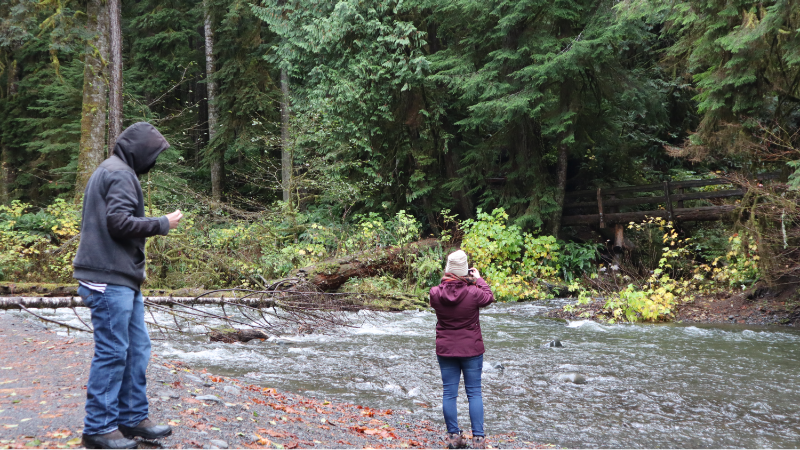
Wilderness therapy programs like the Mindfulness-Based Ecotherapy 12-week Program combine therapeutic elements with outdoor activities in a natural setting to help treat individuals with a range of needs including behavioral, emotional, psychological, and substance use issues.
In 2021, the Washington State Legislature directed The Washington State Institute for Public Policy (WSIPP) to conduct a research review of wilderness therapy programs related to behavioral health.
This report, the first in a two-part series, summarizes findings from their systematic literature review.
In the youth literature reviewed, wilderness therapy programs typically served adolescents aged 13 to 18 with behavioral, mental health, and/or substance use issues. Participants were usually enrolled in programs from one week to three months.
While enrolled, participants backpacked and organized camps, and learned outdoor skills like fire-making, meal prep, and navigation. Therapy sessions facilitated by mental health professionals or therapeutic elements like reflection and goal-setting were embedded into daily outdoor activities.
In the adult literature, wilderness therapy programs were typically provided to individuals ages 18 to 26 with behavioral, psychological, and/or substance use disorders. Adults tended to enroll in programs for shorter periods than adolescents (about 21 days on average). Adults participated in similar outdoor activities as youth.
The majority of studies examining wilderness therapy for youth and adult populations found that outcome measures improved post-treatment, compared to pretreatment. Typically, improvements were observed for outcomes like self-concept, behavior, and clinical measures of depression, anxiety, and PTSD. Other outcomes like resilience, substance use, and social development were also common in both bodies of literature.


